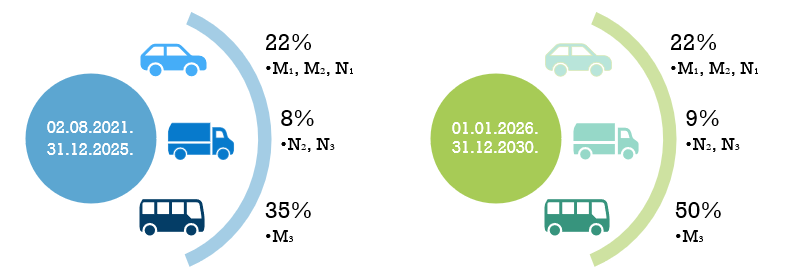Transport plays a key role in society and the economy, as the quality of everyday life depends on an efficient and accessible transport system. . At the same time, transport is one of the main sources of environmental problems in the EU and contributes to climate change, air pollution and noise.
Today, on 2 August 2021, the requirements of Directive 2019/1161 are entered into force at the beginning of the first reference period to be concluded on 31 December 2025, in which the percentage of “clean” vehicles purchased must be reached.
Directive 2019/1161 aims to help reduce CO2 emissions and air and noise pollution of vehicles while at the same time contributing to the decarbonisation of the transport sector or the release of carbon dioxide. . Improving air quality in cities and other contaminated areas as a result of the introduction, while helping to boost the competitiveness and growth of Member States' industries in the growing world market for small and low-emission vehicles.
Directive 2019/1161 takes over with amendments to the Law on Public Procurement and the Law on Procurement of Public Service Providers, which provides for a new procedure in the field of road transport procurement
Although amendments to the Law on Public Procurement and the Law on Procurement of Public Service Providers have not yet been adopted (currently being directed to the Saeima at 3 rd reading), the requirements for clean road transport can already be applied in road transport procurement, ensuring that the European Commission's targets are reached, as the reference period starts on August 2. .
Purpose of the procurement of “clean” road vehicles to be reached for Latvia:
Regulation



